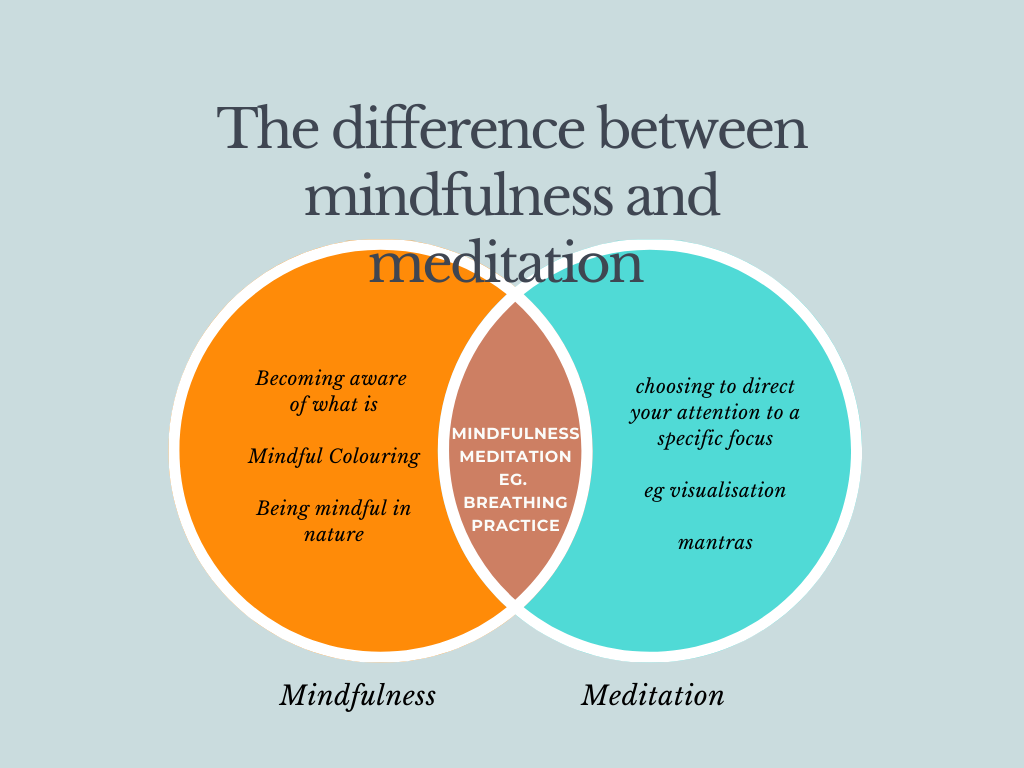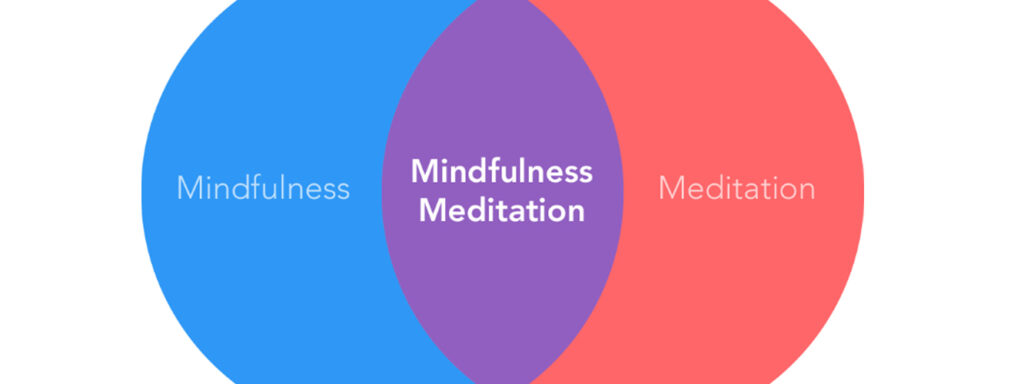Introduction: The Confusion Between Mindfulness and Meditation
Many people use mindfulness and meditation interchangeably, but they are not the same. Understanding the differences can help you incorporate the right practice into your daily life for better mental clarity and stress relief.
What Is Mindfulness?
Mindfulness is the practice of being fully present in the moment, aware of your thoughts, feelings, and surroundings without judgment. It can be practiced anywhere, at any time, even during daily activities like eating, walking, or working.
What Is Meditation?
Meditation is a structured practice that involves training the mind to focus and redirect thoughts. There are different types of meditation, such as mindfulness meditation, guided meditation, and transcendental meditation, each with unique techniques.
Key Differences Between Mindfulness and Meditation
Although mindfulness and meditation share similarities, they have distinct differences:
– Definition: Mindfulness is a state of awareness, while meditation is a formal practice.
– Application: Mindfulness can be integrated into daily life, whereas meditation requires dedicated time.
– Goal: Mindfulness improves present-moment awareness, while meditation enhances deep focus and relaxation.
– Techniques: Mindfulness can be practiced informally, while meditation often involves breathing exercises and structured sessions.

The Benefits of Mindfulness
Practicing mindfulness can provide numerous mental and physical benefits, including:
– Reduced Stress and Anxiety – Helps regulate emotions and lower cortisol levels.
– Improved Focus and Productivity – Increases attention span and cognitive function.
– Better Emotional Regulation – Encourages self-awareness and emotional stability.
– Enhanced Relationships – Promotes better communication and empathy.
The Benefits of Meditation
Regular meditation practice can offer profound benefits:
– Deep Relaxation and Stress Reduction – Calms the nervous system and promotes inner peace.
– Lower Blood Pressure and Better Heart Health – Helps reduce the risk of cardiovascular issues.
– Improved Sleep Quality – Enhances relaxation and reduces insomnia.
– Spiritual Growth and Self-Discovery – Encourages a deeper understanding of oneself.
How to Incorporate Mindfulness and Meditation into Your Life
Here are practical ways to practice both:
– Mindfulness: Practice deep breathing, mindful eating, and active listening.
– Meditation: Start with 5-10 minutes of guided meditation or deep breathing exercises.
– Daily Routine Integration: Set reminders to take mindful breaks throughout the day.
Conclusion: Which One Should You Choose?
Mindfulness and meditation are both powerful tools for improving mental well-being. You don’t have to choose one over the other—combining both can provide the best results. Start small, be consistent, and enjoy the journey to a healthier mind!


